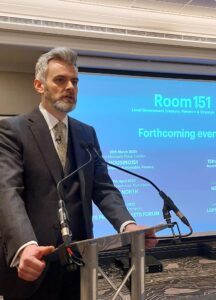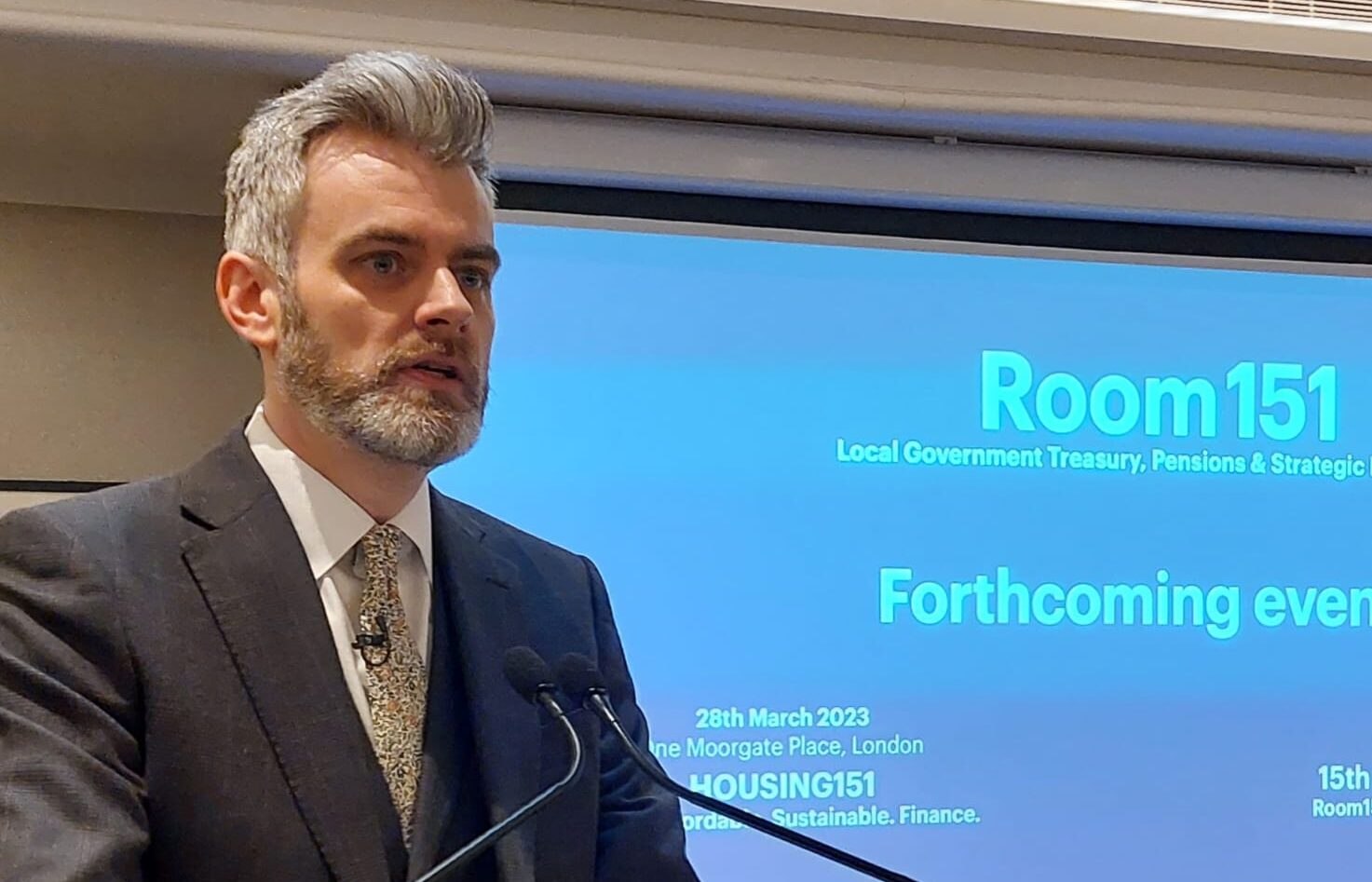High-interest rates and pressure on capital programmes have meant that the biggest risk facing section 151 officers is the “wider economic picture”, the group finance lead of capital and treasury management at Manchester City Council has stressed.
 Reflecting on conversations from Room151’s LATIF North conference in Leeds, Tim Seagrave said that the topic which seemed to be concerning most s151s was the current market and interest rate volatility.
Reflecting on conversations from Room151’s LATIF North conference in Leeds, Tim Seagrave said that the topic which seemed to be concerning most s151s was the current market and interest rate volatility.
He told Room151: “I think the wider economic picture is the biggest risk because I think all the conversations that followed around pressure on capital programmes and around interest rates all flow from this move from relatively low-interest rates and inflation to where we are now. And that’s the thing that has stressed local authority balance sheets.
“That’s one of the reasons why we’re seeing a rise in the number of section 114s that have been issued recently because you’ve had a pandemic, and interest rate explosion and an inflation explosion.”
Seagrave detailed that another observation from the conference was the economic position of “increased protectionism and decline of globalisation”, which local government finance professionals are faced with today.
“And yet, a lot of the problems that we face as a globe are interconnected, such as net zero,” he added.
I think the wider economic picture is the biggest risk because I think all the conversations that followed around pressure on capital programmes and around interest rates all flow from this move from relatively low-interest rates and inflation to where we are now.
Governance failures leading to s114s
Seagrave stated that a session which resonated with him was presented by Dan Bates, director at LGImprove, on whether borrowing is a ticking timebomb for local government finances. The presentation explored the reasons why certain local authorities have issued section 114 notices in the past.
He said: “A big theme that I took away was the idea that not all local authorities are currently perceived to be equal, and some are perceived to be better than others. And when you tie that into liability benchmark stuff, which I know is quite divisive, do we do enough in explaining what we are doing and the impacts and risks associated with it?
“I think it’s been very easy in a benign interest rate environment to have a strategy that ticks over year after year and that members are quite comfortable in the status quo. But, how well are we equipped to deal with a changing interest rate environment or a changing balance sheet environment if you are starting to use reserves more.”
The session highlighted that weak governance and communication between council members and officers was apparent in most authorities who have issued s114s in the past.
Seagrave detailed that Bates’ presentation made it clear that when authorities start using reserves or there is pressure on the capital income it is important to communicate this to council members.
He said: “I do think a big part of our role is to explain to members what we’re trying to do, which is sensitive and is politically challenging.
“But it really made me reflect coming back into the organisation around how well do we do it. And how could we do it?
“How comfortable am I that I am giving my team, senior officers and members the fullest picture possible? How candid can we be in our reporting, not to set hares running unnecessarily, but to make sure that the risks are really understood?
“That is quite a self-reflective piece for any local authorities, is our governance right? Do we have power in the right place?”
Everything we described [in the session] is the background music for levelling up. How can we level up and leverage what we have and create more?
15th Annual LATIF & FDs’ Summit – 19 September 2023
250+ Delegates from Local Government & Investment
Financing levelling up
Another session which resonated with Seagrave was the closing panel on financing levelling up, which highlighted the disparity between the South and North of England.
He said: “Everything we described [in the session] is the background music for levelling up. How can we level up and leverage what we have and create more is the fundamental issue which faces us as local authorities.”
Seagrave highlighted that a point which stuck with him was made by Andrew Carter, chief executive at Centre of Cities, that not everywhere should be levelling up equally as cities can level up and they will drive the agenda in surrounding areas.
“But how do we as communities, not just local authorities, but the communities that we’re in, ensure that that happens and make sure that we don’t end up with heightened differences in deprivation or growth between conurbations for example,” he added.
—————
FREE weekly newsletters
Subscribe to Room151 Newsletters
Follow us on LinkedIn
Follow us here
Monthly Online Treasury Briefing
Sign up here with a .gov.uk email address
Room151 Webinars
Visit the Room151 channel












